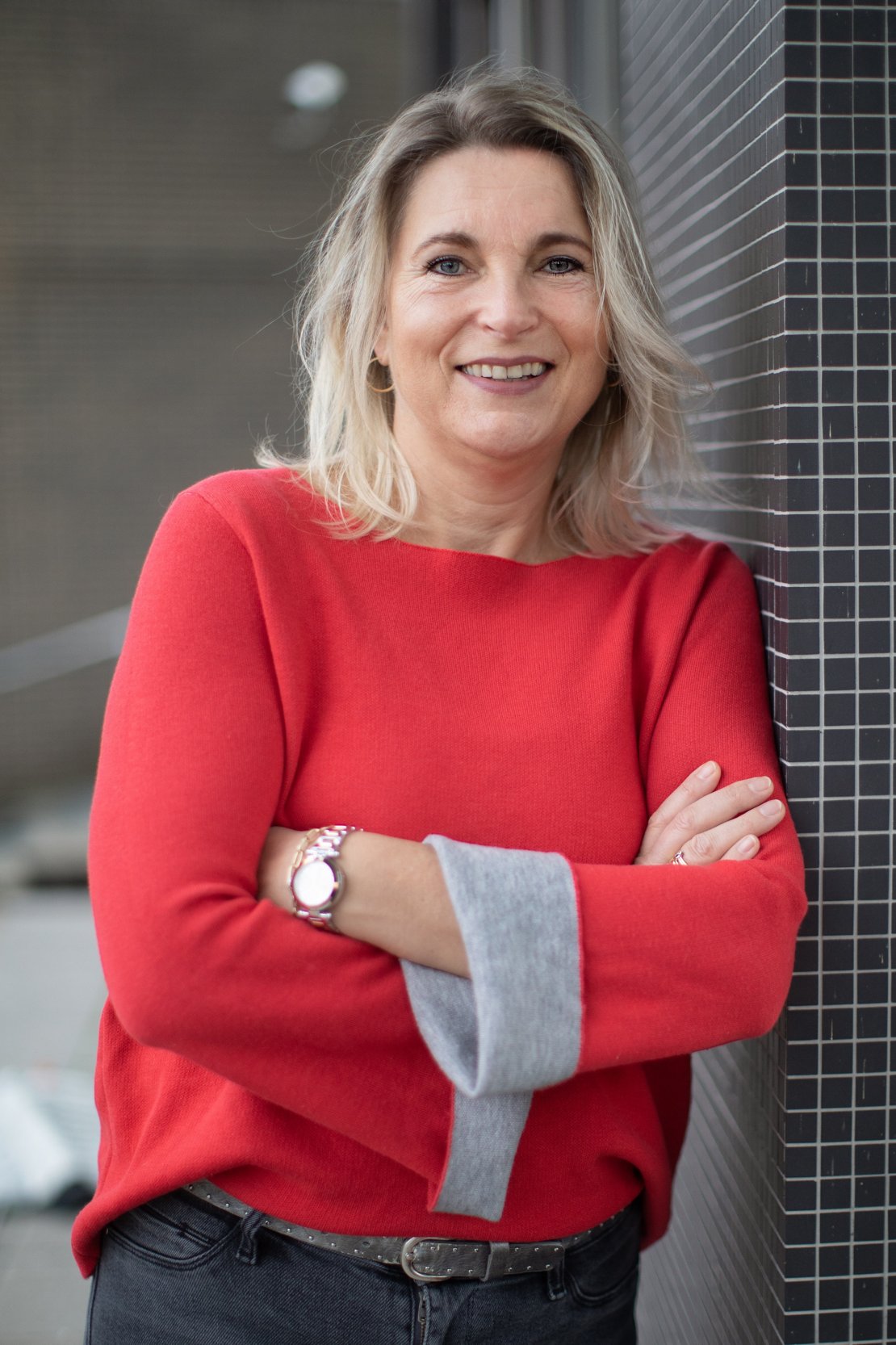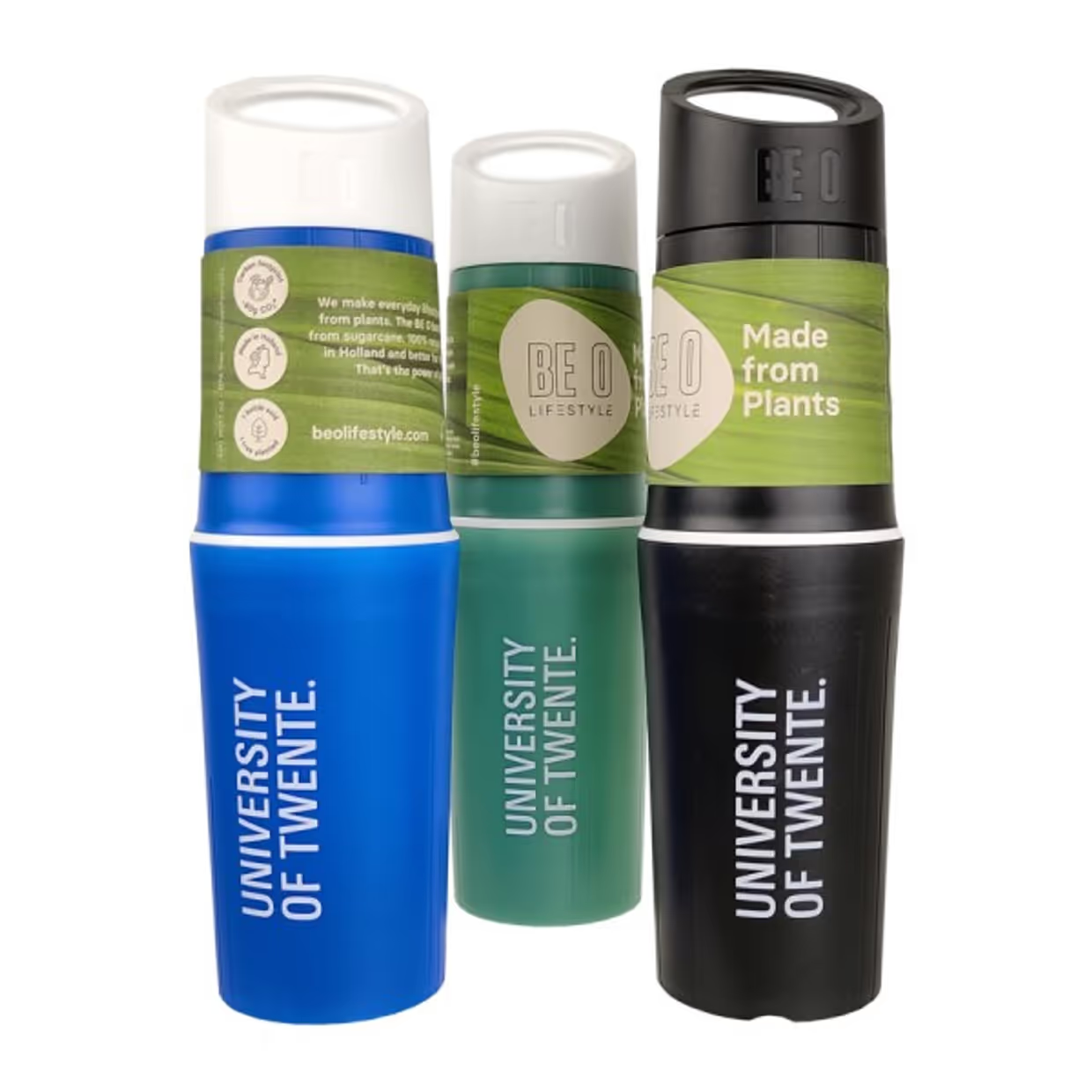Mirjam Nijhuis–Morshuis has been employed at UT for twelve years now. She and her colleague Karin Middelkamp-Elisen work in Team Traffic, part of the Marketing and Communication department. Here, she organises printed matter and merchandise for the whole university. This includes the printing of brochures, flyers, folders, banners, and posters, and the purchase of promotional gifts. “Everyone knows where we are,” she laughs. “Because the items we work with are often harmful to the environment, I always consider the sustainability factor whenever I receive a new order.”
Creating less waste
Orders for all kinds of products come in every day. As they come in, Mirjam’s first order of business is consulting a short checklist. “I always ask what the item is going to be used for. Does it really need to be printed or can it be done digitally? Are so many copies really necessary? You have to probe and be critical in your questions, because anything that is not used goes straight into the rubbish bin. By preventing unnecessary production and consumption, we create much less waste.” Mirjam also considers viable alternatives for products that are non-sustainable. “An example of this is roll up banners of recycled cardboard instead of aluminium. We have also recently introduced a new water bottle, as a replacement for the old Dopper. The new bottle is made of sugar cane, having gone through a highly sustainable process. We are also looking at sustainable clothing made from recycled textiles.”
Sustainability plays a much greater role in Mirjam’s work than was the case ten years ago. “Everything is much stricter now, which you notice when purchasing products, for example.” At the same time, the use of printed materials is declining. “We have become much more digitised. Ten years ago, only 10% of printed matter was used online, compared to 60% today. At that time, the office was packed with flyers and brochures for the minor market, for example. The basement, too, was full of merchandise. It was a case of, ‘you ask, we’ll print’. Now, it’s a different story. Flyers are in an online format, with users being able to print them themselves if they need to. We no longer produce items like covers for bike saddles, stress balls, and other bits and bobs. They are the kind of things that often end up in the rubbish bin, and that’s not something we want any association with.”
Mirjam believes these changes have happened naturally. “People are increasingly aware of the importance of being careful with the earth’s resources.” Sustainability is also a key theme of Shaping2030. “If we all do our bit, there is absolutely no reason why the UT’s sustainability targets cannot be reached. I am firmly convinced of that.”
An increasingly sustainable university
Sustainability in purchasing starts with the suppliers. Mirjam explains that the criteria in this regard are very strict. “We very much want to know what a company’s approach to sustainability is. That is why we insist on seeing the proper certification.” The supplier that Mirjam now uses is located on the other side of Hengelosestraat, in Kennispark Twente. “The partnership works really well as a matter of course, because it cuts out the need for lorries to cross the entire country in order to deliver their loads.” The supplier also gives advice on purchasing sustainable products, which makes the partnership even more rewarding.
People at the university wishing to place an order can also play their part by thinking carefully about what they are asking for. Mirjam is only too pleased to advise on this. “People always take our advice very much on board. I have never met anyone at UT to whom the environment did not matter.”

Personal drive
Sustainability is an important part of Mirjam’s life away from the university, too. “It’s naturally a part of me. We have to be sparing with the earth’s resources and use them more carefully. For example, I regularly buy second-hand clothing, keep the heating low, and carefully separate my waste. I’m also having solar panels and a heat pump fitted at home.” This drive to live more consciously spills over into her work. “It’s a natural process for me, and it doesn’t take any effort. It’s simply a matter of thinking carefully about everything that you do. I also have a strong desire to inform people about sustainable choices. That’s not a work-based goal, but comes simply from my own personal motivation.”
SUSTAINABILITY AT UT
Sustainability is an important priority area of Shaping2030, the University of Twente’s strategic plan. In addition to finding sustainable solutions for societal issues, the UT wants to set a good example of what it means to be a sustainable organisation. To reach this goal, the ambitions of Shaping2030 need to be put into practice. Many members of the UT community are hard at work translating the sustainability objectives into our work on campus – transforming the way we work, teach, learn, travel, build and more. In this series, we invite them to talk about what motivates them, what the role of sustainability is in their day-to-day work, and what they would like to achieve at our university.
Want to find out more about sustainability at UT? Please go to utwente.nl/sustainability.
Written by Elizabeth Westra






